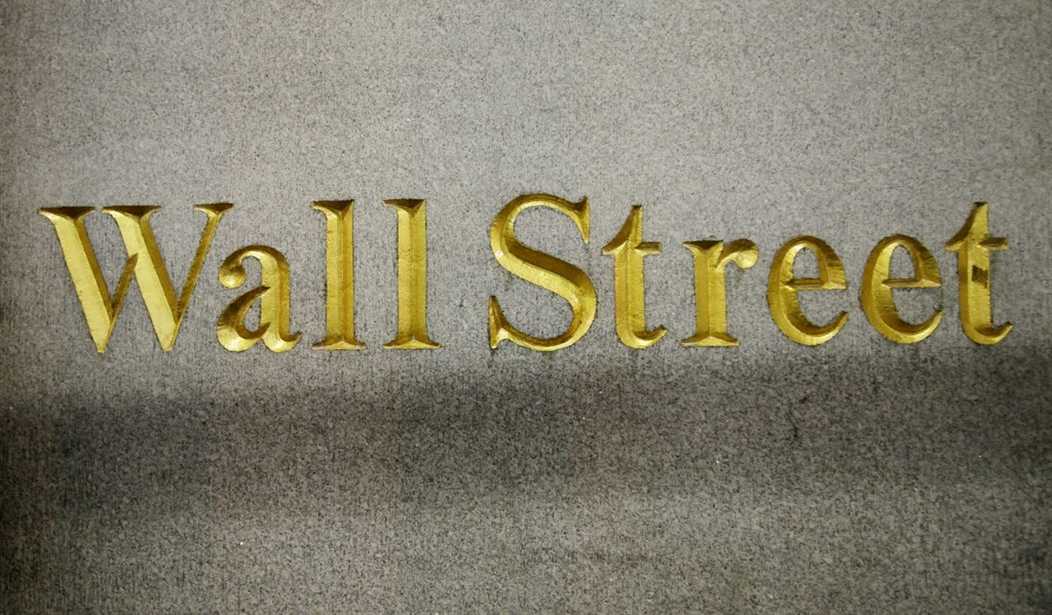President Donald Trump's pledge to "Make America Great Again" requires nothing less than reigniting economic growth and prosperity. Wealth creation is essential. As Congress pivots to tax reform -- which is crucial to the wealth creation -- the president could take matters into his own hands by issuing an executive order to index capital gains for inflation.
President Trump's absolute best economic policy so far has been his relentless rampage against onerous, burdensome, costly, prosperity-killing business regulations. And the taxation of inflationary capital gains fits right in there. It is an unfair and misguided policy that punishes risk and success. The president should use his executive authority -- as he so often has to drain the swamp -- to remove this prosperity-killing practice.
Consider this: You invest $1,000, and after 10 years, you sell that investment for $1,200. But if inflation averaged 2.5 percent in that period, the $1,200 you receive will be worth less in real terms than the $1,000 you invested. And yet, under current law, you will pay a tax on your $200 capital gain.
The results of this policy can be perverse. "As has been well documented," writes Alan Auerbach, an economist at the University of California, Berkeley, "realized capital gains may be subject to tax rates that easily exceed 100 percent of real gains in the presence of inflation."
But it's the law. And eliminating it would not only be the fair thing to do for investors -- it would spark a wave of prosperity.
Gary Robbins, a former economist for the Department of Treasury, estimates that indexing capital gains for inflation this year would create an additional 400,000 jobs, grow the U.S. capital stock by $1.1 trillion, and boost GDP by roughly $500 billion by 2025. That all translates to an additional $3,600 for the average household.
Recommended
President Reagan ushered in two decades of prosperity with his tax and regulatory policies, including an audacious (and sorely needed) measure to index much of the federal tax code for inflation. That capital gains indexation was not included in that measure has bedeviled economists who consider it bad policy to levy a tax on inflationary gains.
Congress has repeatedly toyed with legislation to index capital gains. In fact, a measure containing a fix for the problem landed on then-President Clinton's desk in 1995, only to be vetoed.
If President Trump wants to hear firsthand why capital gains indexation is so important, he need only speak with his vice president. In 2006, then-Rep. Mike Pence introduced legislation with 88 co-sponsors to index capital gains for assets held for more than three years.
Capital gains taxes totaled $134 billion last year. According to Robbins, approximately one-fourth of that revenue was generated by taxing inflationary gains. That translates to a $34 billion tax on phantom income.
Opponents of capital gains indexation say the associated revenue loss would be too great. But inasmuch as inflationary gains should not have been taxed in the first place, a revenue loss is a good thing. It represents the correction of a tax injustice.
But the second-order effects that Robbins documents should remove any reservations based on revenue loss. Without the federal tax on inflationary gains, asset prices will adjust until they reach a new, higher equilibrium. Shareholders and other investors will see their portfolios grow. And the federal government will collect billions of dollars in new tax revenue as taxpayers realize real capital gains.
Meanwhile, more investing and risk-taking will increase much-needed productivity, real worker wages and overall economic growth. Will real revenues rise as well? We betcha.
There is the question of whether the president has the legal authority to issue an executive order instructing the treasury secretary to issue new regulations to index the capital gains cost basis for inflation. The matter comes down to whether the governing Internal Revenue Code section covering the definition of the word "cost" is sufficiently ambiguous to allow regulatory reinterpretation. Congress never specifically mandated that "cost" was to be determined in nominal terms, nor did it prohibit the use of real valuation.
When President George H.W. Bush's administration looked into this 25 years ago, attorneys at the Justice Department and the Treasury Department concluded that the president lacked legal authority. However, according to a landmark paper by Charles Cooper and Vincent Colatriano that appeared several years ago in the Harvard Journal of Law & Public Policy, "jurisprudential developments over the last two decades have confirmed ... that Treasury has regulatory authority to index capital gains for inflation."
Former Federal Reserve Board Governor Wayne Angell correctly identifies the tax on phantom capital gains as "the worst aspect of the most damaging tax on capital." President Trump could solve this problem with the stroke of his pen and, in the process, promote economic growth and prosperity.

























Join the conversation as a VIP Member